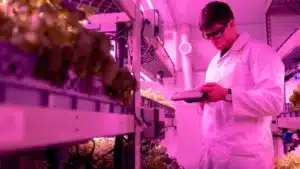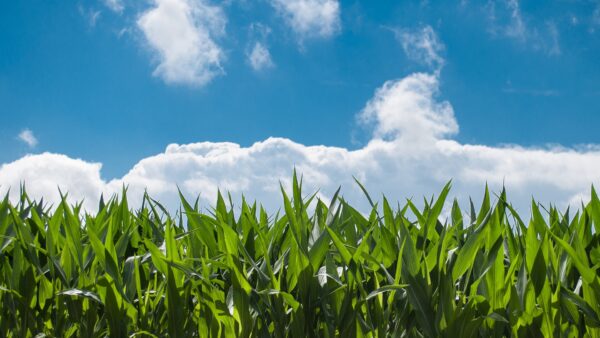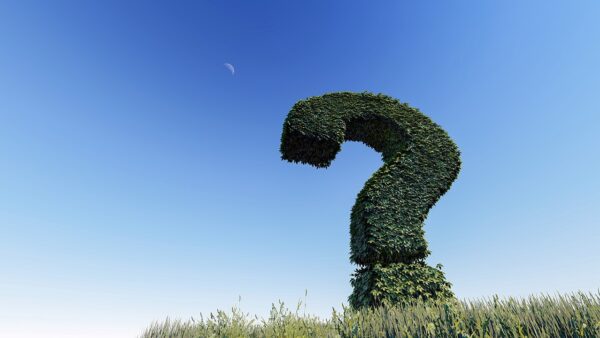Agricultural research is a complex and time-consuming process. To breed a new crop variety or learn the inner workings of a plant disease it can take years and teams of researchers. Those researchers may be working for public institutions or for private companies, but at the end of the day, they’re both working to advance agriculture and help farmers grow the best crops they possibly can.
On the Jan. 10 episode of Seed Speaks, we’re taking a closer look at how private and public researchers work together to move agricultural research forward. We’re joined by Jed Christianson, canola product design lead for Bayer CropScience; Kamil Witek, group leader of 2Blades; and Mitch Tuinstra, professor of plant breeding and genetics in Purdue University’s Department of Agronomy, the Wickersham Chair of Excellence in Agricultural Research, and the scientific director of the Institute for Plant Sciences in the College of Agriculture.
Christianson is from Portage la Prairie, Man. and studied plant genetics at the University of Alberta where he received a PhD. In his early career, Christianson explored genetic and physiological responses to pathogens and drought stress in canola, cotton, arabidopsis and soybeans while working at public research organizations such as the University of Alberta, Agriculture and Agri-Food Canada and the Commonwealth Scientific and Industrial Research Organization in Australia. For the past 13 years Christianson has worked with Bayer as part of the plant pathology, native trait discovery and canola breeding teams.
Witek is the 2Blades group leader based at The Sainsbury Laboratory in Norwich, UK. 2Blades’ focus is on discovering and advancing technologies that prevent or reduce crop disease to improve agricultural output and the lives of people around the world. Currently, the group is aiming at delivering Asian Soybean Rust (ASR) resistant soybeans for smallholders in sub-Saharan Africa. Before joining the 2Blades, Witek was a post-doctoral researcher in Jonathan Jones’ group at The Sainsbury Laboratory, where he created germplasm collections and developed novel techniques to clone a variety of functional plant immune receptors.
Tuinstra previously attended Calvin College in Grand Rapids, Mich. and received his master’s in horticulture and his doctorate in agronomy from Purdue University. His research focuses on identifying genes and genetic resources that contribute to improved crop performance in stressful environments. Tuinstra has been highly successful in initiating international collaborations with scientists and breeders in North America, Africa and Asia, and he received the 2023 Lowell S. Hardin Award for Excellence in International Agriculture for his contributions.
Join us on Jan. 10 at 12 p.m. CST on Seed World U.S., Seed World Canada, Seed World Europe and the Alberta Seed Guide’s Facebook pages, Seed World U.S.’s LinkedIn page and Seed World Group’s YouTube page to watch the discussion.










